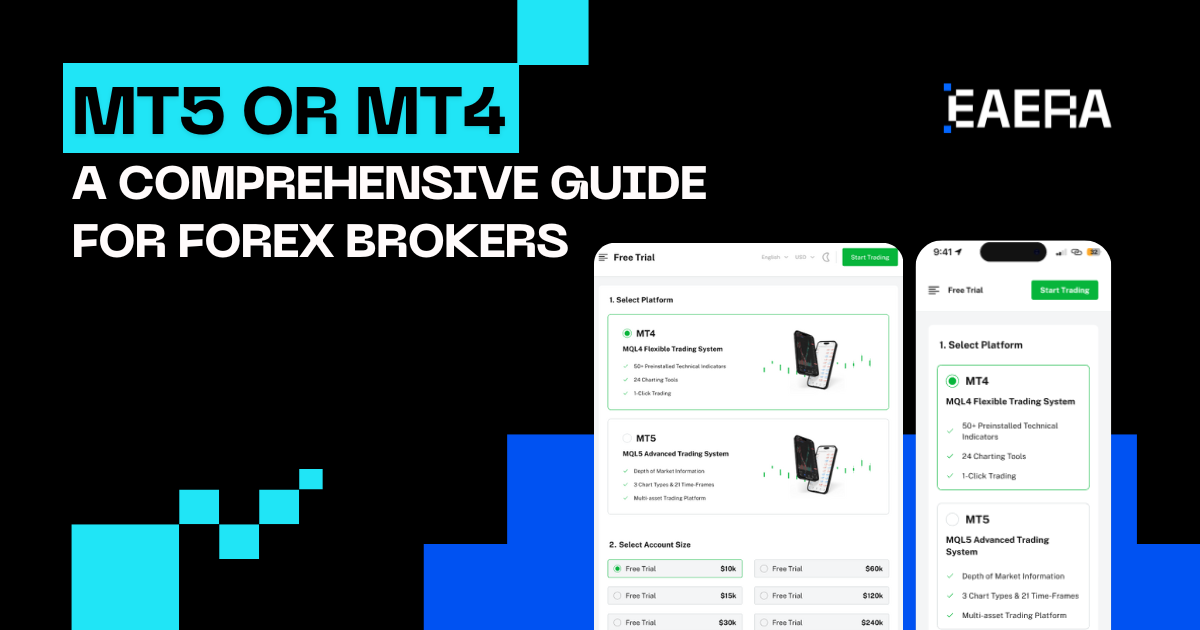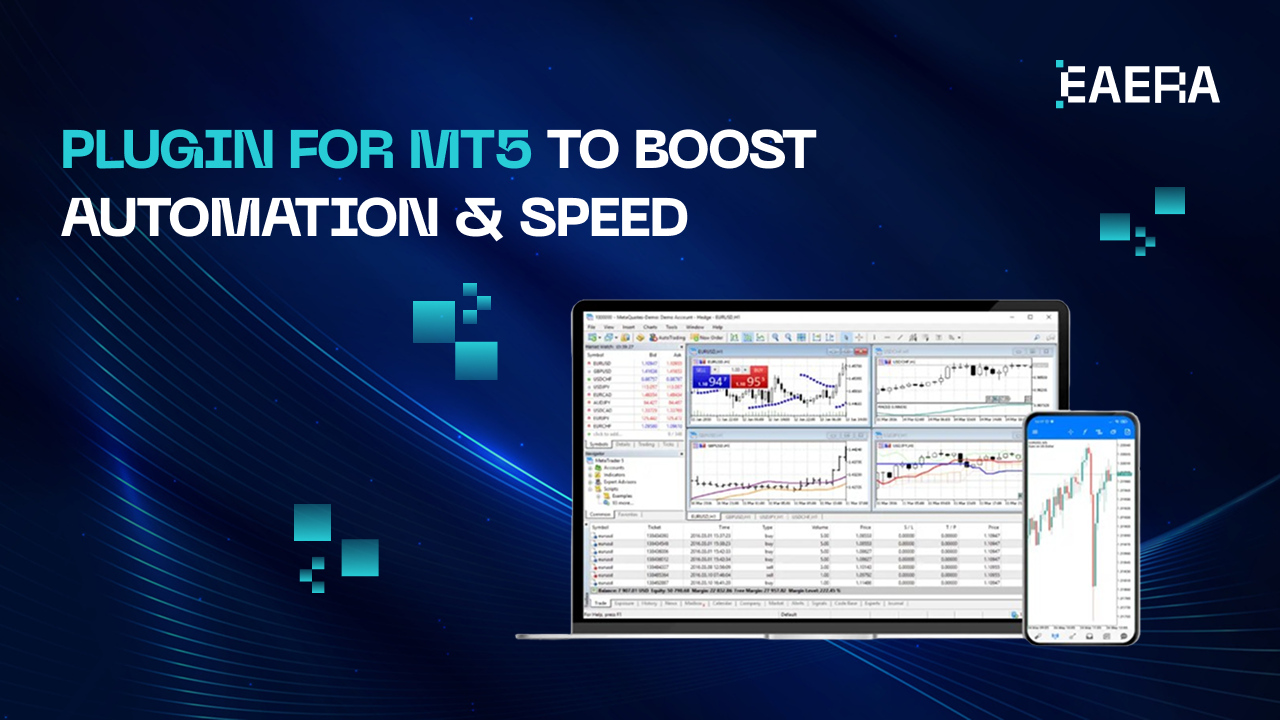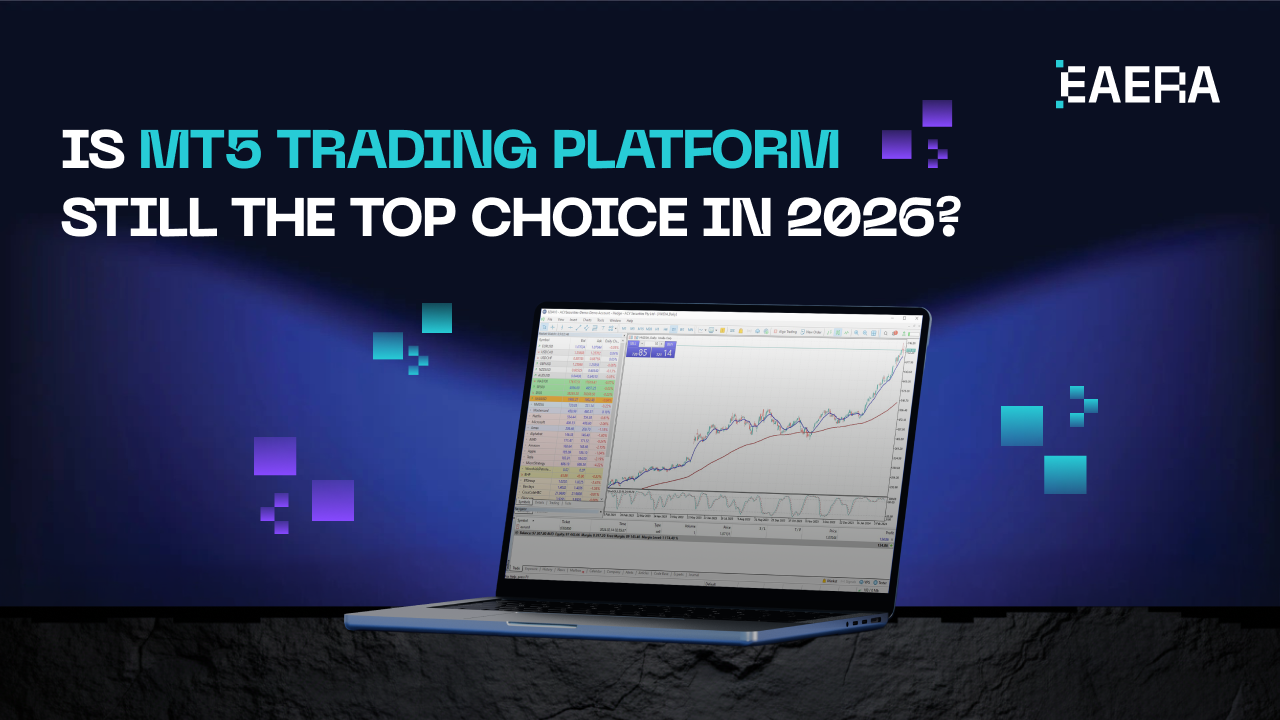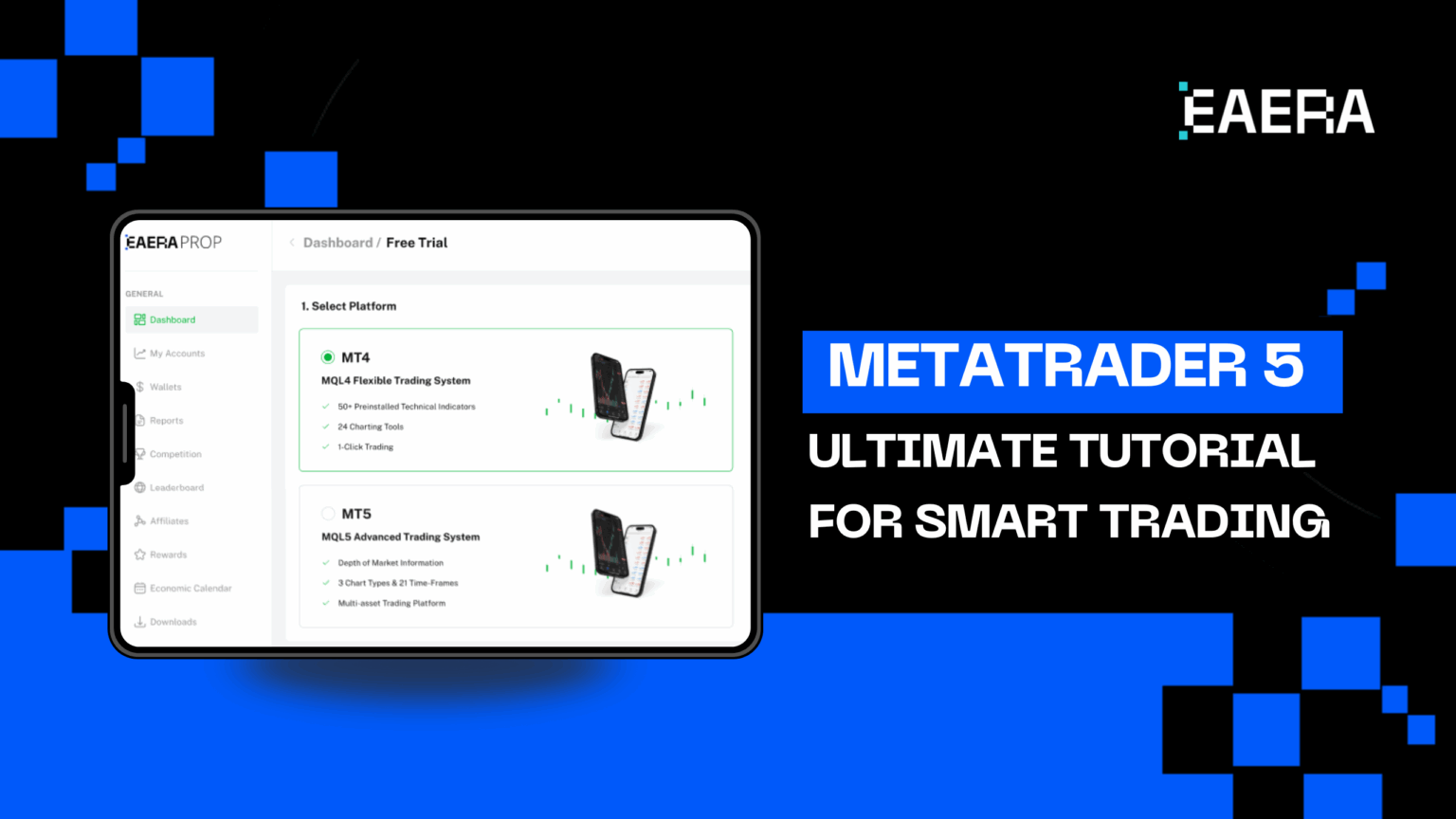MetaTrader 4 (MT4) and MetaTrader 5 (MT5) are pivotal platforms in the trading world, each tailored to different user needs. MT4, trusted by brokers and traders globally, offers a straightforward, reliable experience. Meanwhile, MT5 expands capabilities with advanced features and broader market access. For FX brokers, prop firms, and fintech companies, understanding the MT4 MT5 difference is essential to delivering a seamless trading solution. Is MT4 or MT5 better for your business? This analysis helps you align platform choice with operational goals and client demands.
Related articles:
- Forex CRM Software: 7 Key Characteristics That Deliver Results
- Choosing the Best CRM for FX Brokers: A Step-by-Step Guide
1. Understanding MetaTrader 4 (MT4)
MetaTrader 4 (MT4) is arguably the world’s most recognized forex trading platform, part of the MetaTrader suite developed by MetaQuotes Software Corp. Since its launch in 2005, MT4 has earned acclaim for its customizable features, extensive technical indicators, integrated programming language, and automated trading capabilities. It also offers sophisticated analysis tools, making it a cornerstone in forex trading. Unlike a broker, MT4 is a third-party platform that connects users to their chosen forex broker. In the MetaTrader 4 vs. 5 debate, understanding the MT4 MT5 difference can guide traders and brokers in deciding whether MT4 or MT5 is better suited to their needs.
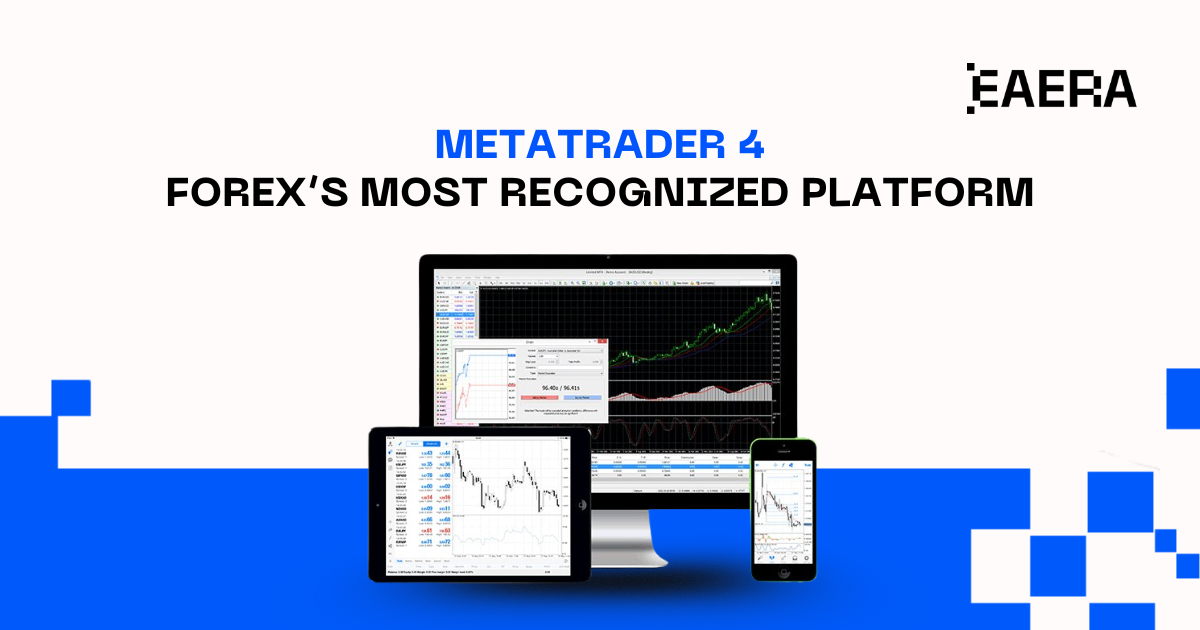
MetaTrader 4 (MT4) – The world’s most recognized forex trading platform
2. What is MetaTrader 5 (MT5)?
MetaTrader 5 (MT5) is a next-generation trading platform and the successor to MetaTrader 4, designed to support multi-asset trading across a broader range of instruments. While similar in appearance to MT4, MT5 stands out with advanced features like the MQL5 programming language, enhanced graphical tools, additional indicators, and new statistical functions. MT5 also offers an upgraded Strategy Tester and supports both hedging and netting trade systems. In the MetaTrader 4 vs. 5 comparison, the MT4 MT5 difference lies in MT5’s expanded functionality, making it a compelling choice for multi-asset traders.
3. Technology Significant Upgrades: Metatrader 4 and 5 Comparison
When comparing MetaTrader 4 (MT4) and MetaTrader 5 (MT5), it’s clear that both platforms have distinct advantages depending on the forex broker’s needs. The MT4 vs. MT5 debate often comes down to the MT4 MT5 difference in features, with MT5 offering several enhancements that make it a powerful option for advanced traders and multi-asset markets.
Charting and Analysis
MT5 significantly improves upon MT4 in terms of charting and analysis capabilities. With 38 technical indicators, 44 analytical objects, and 21 timeframes, MT5 provides brokers & traders with a broader toolkit for technical analysis. In comparison, MT4 offers only 30 indicators, 23 objects, and 9 timeframes, which might feel limiting for users who require advanced charting. Additionally, MT5 supports more complex custom indicators and strategies, thanks to its enhanced processing capabilities, making it a better option for those needing in-depth market analysis.
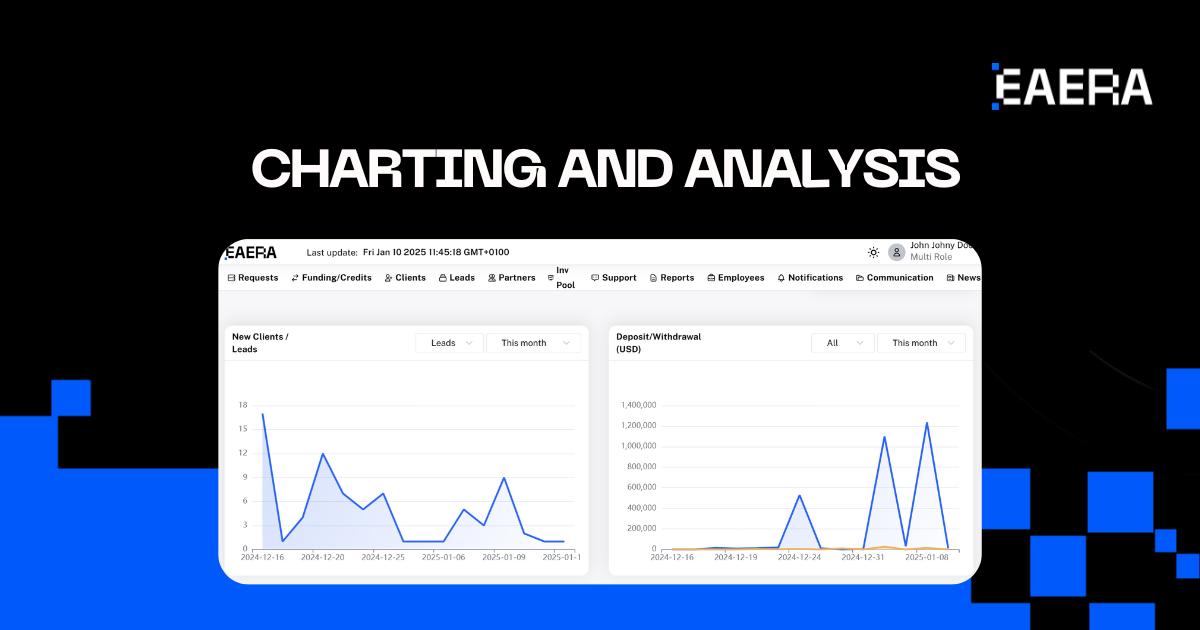
MT5 significantly improves in terms of charting and analysis capabilities
Drawing Tools
When it comes to drawing tools, MT5 provides greater precision and flexibility. Users can have more advanced graphical objects, such as trendlines, shapes, and channels, which can be drawn with greater accuracy. MT4, while offering basic charting tools, lacks the advanced graphical options that MT5 provides, making MT5 the better choice for those who rely heavily on chart annotations.
Strategy Testing
MT5 stands out with its advanced Strategy Tester, which is optimized for multi-core, multi-threaded backtesting, enabling faster and more efficient testing on large datasets. For running complex algorithms or testing over extended periods, MT5’s backtesting capabilities offer a significant advantage. MT4, on the other hand, lacks the processing power of MT5 and can be slower and less efficient when handling large-scale backtests, making the MT4 MT5 difference clear for those who need speed and accuracy in their strategy testing.
Hedging
The MT4 vs. MT5 comparison also extends to trade management. While MT4 supports traditional hedging, MT5 offers additional functionality through its netting system. This system allows users to offset positions and manage risk more effectively, which is particularly useful in markets like stocks and futures. MT4, although reliable for hedging strategies, doesn’t have the same flexibility as MT5 in this area.
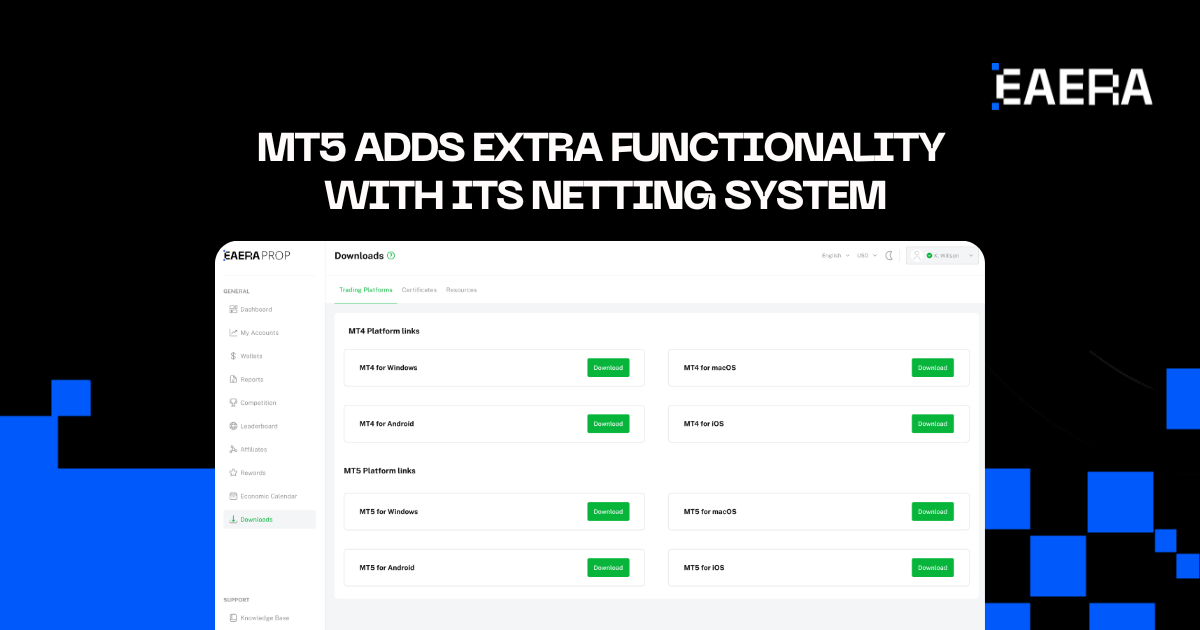
MT5 offers additional functionality through its netting system
4. Metatrader 4 vs Metatrader 5: Is MT4 still relevant in the age of MT5?
While MT5 is the better choice for brokers seeking advanced tools and multi-asset capabilities, MT4 remains the ideal platform for those who value simplicity, ease of use, and a strong support community. When choosing between MT4 or MT5 better, consider the level of complexity and the type of trading you plan to engage in.
Simplicity and User-Friendliness
When comparing MetaTrader 4 vs 5, MT4 is often preferred for its simplicity and user-friendly interface. It offers an intuitive design that makes it easy for beginners to navigate and quickly grasp the basics of trading. In contrast, MT5, while more powerful, can be overwhelming for those who don’t require its advanced features, highlighting the MT4 MT5 difference in terms of complexity.
Less Complex Features
MT4’s streamlined set of features makes it less complicated for users who do not need the extensive functionalities offered by MT5. While MT5 excels in advanced tools and multi-asset support, MT4 caters more to those focused on straightforward forex trading, making it a less daunting option for new users.
Strong Community and Support
With a longer history, MT4 boasts a larger, more established user base. This has resulted in a wealth of online resources, tutorials, and forums where users can seek help, making MT4 a more accessible platform for many. The extensive community support makes it easier for new users to find solutions to their problems, providing a more welcoming environment.
MQL4 Programming Language
The MQL4 programming language has been in use longer, making it a familiar tool for many broker CRM software. Known for its simpler syntax compared to MQL5, it allows users to easily create custom indicators and trading robots without the added complexity found in MT5. This makes MT4 a better option for those who prioritize ease of use and need fewer advanced programming features.
5. Upgrade to MT5: Why It’s Worth It
Multi-Asset Trading
MT5 supports a wider array of financial instruments, including forex, stocks, futures, options, and cryptocurrencies. This enables users to diversify their portfolios beyond just currency markets. In contrast, MT4 is limited to forex trading, emphasizing the significant MT4 MT5 difference.
Advanced Algorithmic Trading
MT5 uses the more powerful MQL5 programming language, allowing for the development of more complex and sophisticated algorithmic trading strategies. MT4, on the other hand, relies on MQL4, which offers less flexibility and fewer advanced features, making MT5 the better platform for brokers focused on automation.
Improved Strategy Testing
The MT4 vs MT5 difference becomes evident in strategy testing. MT5 includes a more advanced Strategy Tester that is optimized for multi-core processors and 64-bit systems, enabling faster and more efficient backtesting of complex strategies. MT4’s testing capabilities are slower and less efficient for large-scale backtests.
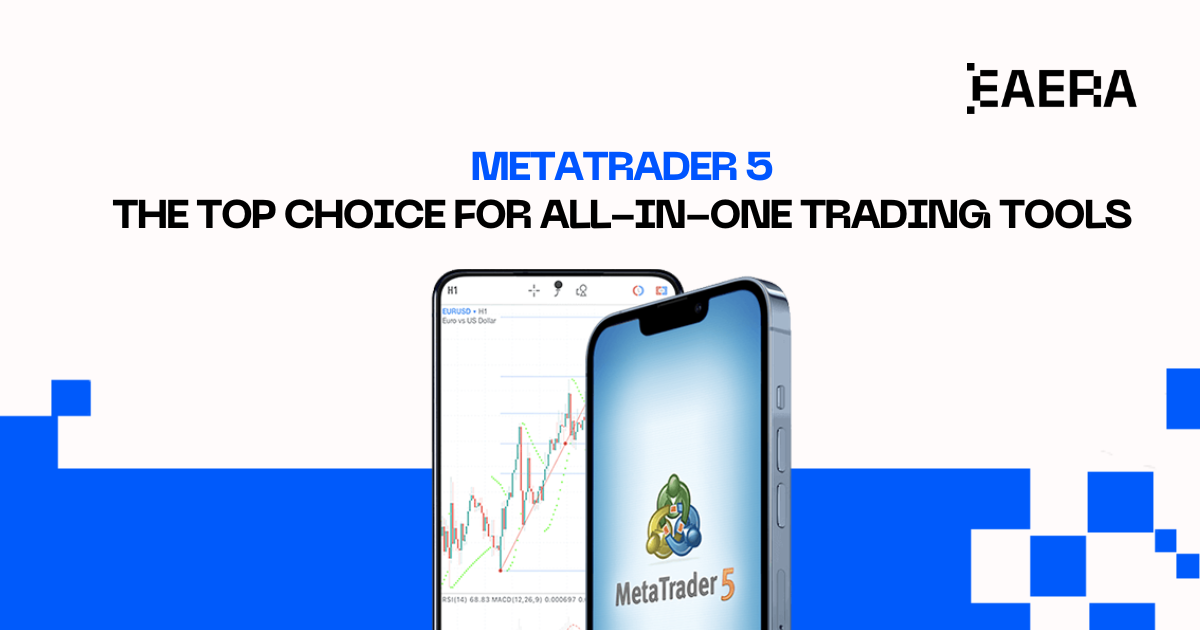
MT5 – The superior choice for seeking a comprehensive set of trading tools.
Additional Features
MT5 introduces additional tools such as a built-in economic calendar, advanced charting options, and a more intuitive interface, making it a user-friendly platform. MT4 lacks these modern features, positioning MT5 as the superior choice for seeking a comprehensive set of trading tools.
6. Experimenting with EAERA’s MT5 Reporting System
Looking to take your MetaTrader 5 trading operations to the next level? EAERA’s MT5 Reporting System is designed to empower your trading environment with streamlined workflows and data-driven decision-making. Seamlessly integrated with the MT5 platform, this solution enhances your operational efficiency while delivering actionable insights.
Key Features:
- Comprehensive Analytics: Access detailed reports to evaluate and improve trading performance.
- Global Compatibility: Support for multiple languages and currencies ensures adaptability across markets.
- Real-Time Synchronization: Leverage real-time data updates for timely and informed decision-making.
- Regulatory Assurance: Maintain compliance with evolving industry standards.
- Scalable and Secure: Built to support businesses of all sizes with robust security measures.
While both MetaTrader 4 (MT4) and MetaTrader 5 (MT5) were developed by MetaQuotes, they offer distinct functionalities and trading capabilities. MT4 provides a more streamlined trading experience, primarily focused on forex trading. In contrast, MT5 is a versatile, multi-asset platform supporting a broader range of financial instruments, including fintech products. The choice between MT4 and MT5 will depend on the specific needs of each Forex Broker, determining the level of complexity and variety of trading instruments they wish to offer the clients.
